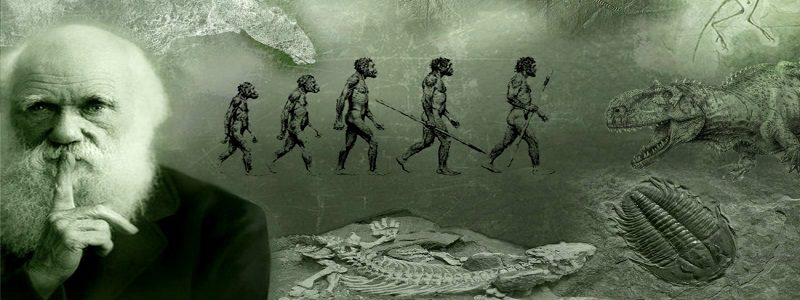
Strategies for Getting Students Arguing in Evolutionary Biology
This is a small set of recommendations for incorporating – or upgrading the presence of – academic argument and argumentative literacy in  a high school biology course’s evolution unit. Argument-Centered Education is working with partner schools on designing and implementing several of these strategies currently. Each of these strategies is directly aligned with the Next Generation Science Standards, as we demonstrate below.
a high school biology course’s evolution unit. Argument-Centered Education is working with partner schools on designing and implementing several of these strategies currently. Each of these strategies is directly aligned with the Next Generation Science Standards, as we demonstrate below.
Weigh the Varying Influence of Evolutionary Factors in a Specific Scenario
The NGSS sets as an objective for high school study of evolution that students should
Construct an explanation based on evidence that the process of evolution primarily results from four factors: (1) the potential for a species to increase in number, (2) the heritable genetic variation of individuals in a species due to mutation and sexual reproduction, (3) competition for limited resources, and (4) the proliferation of those organisms that are better able to survive and reproduce in the environment (HS-LS4-2).
For one of their formative assessments – to be completed over two days – students can be asked to make an argument that weighs these four factors in a specific evolutionary scenario. The scenario can one that the class has studied, is in the classroom text, or is accessed online. Students’ arguments can either identify a single most-important factor in explaining the evolutionary scenario, or they can identify the way that two of the factors work together to explain the evolutionary scenario.
Students should also come up with the strongest counter-argument that another scientist who disagrees with their argument might raise in opposing it. Students should then try to refute that counter-argument.
Students will need to be given a model of a successfully completed argument and refutation of a counter-argument, on a parallel case.
Evaluate the Evidence Supporting Claims that Changing Environmental Conditions Will Affect Species in Specific Ways
Another NGSS objective is:
Evaluate the evidence supporting claims that changes in environmental conditions may result in: (1) increases in the number of individuals of some species, (2) the emergence of new species over time, and (3) the extinction of other species (HS-LS4-5).
That objective can be coupled with
Evaluate the evidence behind currently accepted explanations or solutions to determine the merits of arguments. (HS-LS4-5).
To address these objectives, an argument-based strategy is to provide students with 2 – 3 narratives of changing environmental or climatic conditions, and for each of these scenarios, students should be presented with a fully-developed argument that makes a claim about how the predominant species in this environment will be affected by the changes descrirbed. Each argument should have two pieces of evidence plus reasoning.
What students should be asked to do is evaluate the strength of the evidence supporting each argumentative claim. Evidence should be evaluated on the criteria that apply to academic argumentation broadly, applying them to the evolutionary biology context.
Alignment
Does the evidence or data directly support the claim? Is it relevant to the claim? Or does it support a slight variation or a completely different claim?
Credibility/Methodology
Is the evidence internally credible, believable, convincing? Is the methodology that was used to gather data reliable, sound, objective, unbiased, compliant with relevant scientific norms, valid?
Sufficiency
Is there enough data to render a judgment that the claim is likely to be true? How certain does the evidence suggest the claim to be? Is the data internally corroborative and robust?
Scientific Reasoning
Has analytical, logical, thoughtful, and informed scientific reasoning explained how the data proves that the claim or conclusion is likely to be correct and valid?
These criteria should be taught in the context of this three-day lesson. After completing the evidence evaluation activity, students should share their evaluations with a partner. Then each pair should share out where they agreed, and where they disagreed (and why), on their evidence evaluations.
Trace the Way that Empirical Data Revised a Unit Claim
The NGSS posits that scientific knowledge is based on empirical evidence, so conclusions about the natural world are conditioned on the continued corroboration of additional empirical data. The implication is that scientific knowledge can change.
A scientific theory is a substantiated explanation of some aspect of the natural world, based on a body of facts that have been repeatedly confirmed through observation and experiment and the science community validates each theory before it is accepted. If new evidence is discovered that the theory does not accommodate, the theory is generally modified in light of this new evidence. (HS-LS4-4).
The strategy to address this objective within the context of evolutionary biology is to ask students late in the unit to identify an example from all of the activities participated in, resources read and watched, and formative assessments completed in which a scientist (professional or student) revised their argumentative claim based on additional or new empirical evidence. The graphic organizer that students will use in this one-period formative assessment will ask students to write out the before and after argumentative claim, the original evidence set, the new or additional data that affected the claim, and an analysis as to whether the further empirical evidence justified the change.
Refute Misconceptions about Evolution
Students can often best learn both the scientific method and the current state of scientific knowledge by thinking through the scientific evidence and reasoning that contradicts and disproves common misconceptions about science.
Students in this strategy can be introduced to these misconceptions about evolutionary biology.
Transmitted characteristics are acquired during the life time of the organism.
Individuals can adapt to a changing environment. These adaptations are heritable.
Evolution is goal-directed.
Natural selection is a theory, not a fact.
Natural selection requires a very long time.
Organisms change intentionally (an organism tries, needs, wants to change its morphology or physiology).
Changes in populations occur through a gradual change in a trait of all members of population.
In this argument-based strategy, students should be groups. Each group should be assigned one of the misconceptions; multiple groups can be working on the same misconception.
The groups should be given an argument-based graphic organizer that asks students to research where this misconception is found, and then the best argument (with scientific evidence and reasoning) that refutes it. They should then research their assigned misconception – and reference classroom work on any of the evolutionary scenarios that references in some way their misconception – to find information that helps them support their responses.
Conclusion
Argumentation is, according to the Next Generation Science Standards, the “central motivation” of all scientists. Science is founded on the same rational system of putting forwarding conclusions about the world that are supported by evidence and that are then subject to critique. Scientists try to defend their conclusions in response to this critique, and in this cyclical process scientific knowledge is advanced. Teaching our students science, and how to do science, necessitates teaching students scientific argumentation. These strategies are assisting ACE partner schools deepen their capacity to do just that.

